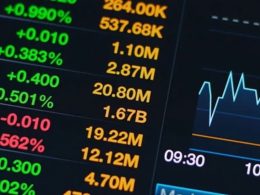by Edward Harrison, Credit Writedowns
On Twitter the latest buzz is about the US ten-year government bond hitting a record low of 1.6713%. Some are amazed that the world of ‘financial repression’ where long-term yields are lower than consumer price inflation can go on and on without a hiccup. Well don’t be. Long-term interest rates are a series of future short-term rates. If the central bank is telling you that zero rates are practically permanent i.e. permanent zero, wouldn’t you expect the term structure to eventually flatten? That’s what has happened, folks – just as in Japan.
So what does this mean for you and me? Well, first of all, what’s your savings account statement saying? Is it telling you you can spend a lot more because you are flush with interest income or is it telling you you better save more if you expect to retire without having to live on cat food? Here’s another question: does this bode well for consumption or ill? Clearly, it bodes ill via the interest income channel but it could bode well if you and I leverage up a bit as debt service costs are down. And that is the point of low rates, by the way.
The Fed is squeezing interest rates down to levels where you see private portfolio preference shifts, a euphemism for the risk seeking return mentality that arises from artificially low real fixed income returns and that forces up risk assets. But this can only go one for so long.
See, eventually there will be another recession and the question should be what happens to all those toxic assets on bank balance sheets. What happens if new loans go sour too? If you recall, US FDIC-insured institutions recorded $35 billion in Q1 2012 accounting gains. But the quality of those accounting gains was dubious. Here’s the key line to note:
Lower provisions for loan losses and higher noninterest income were responsible for most of the year-over-year improvement in earnings.
That means FDIC insured institutions are under-provisioning and earning money through non-lending channels. These institutions are taxpayer guaranteed by the FDIC because they take deposits and lend that money in support of economic activity. Yet, what the FDIC is telling you is that institutions are not earning money through the traditional interest income channel which is the source of their FDIC guarantee. And that’s as you should expect in a permanent zero environment.
After all, that’s what regulatory forbearance is all about, by the way. The S&L crisis is a prime example:
So what happened in the S&L crisis is that in the early 1980s American banks got slammed by Volcker’s high interest rates. Lending long and borrowing short meant that they were losing money as short rates skyrocketed. What’s more is that the S&L model was busted by money market funds which competed with the S&L’s low cost deposit funding base. The fix was what is known as regulatory forbearance, which is a fancy way of saying regulators looked the other way as insolvent banks continued to operate as if they were solvent.The thinking here was that giving the banks a bit of time to "earn" their way back into solvency would keep the 1980-1982 crisis from becoming another Great Depression. There was no Great Depression in 1982. But S&L executives ended up loading up on risky high yield assets, knowing that it was a heads-I-win tails-you-lose situation since their banks were already insolvent. Many like Charles Keating turned to fraud and looting, what criminologist and law professor Bill Black calls control fraud.
So, what we should expect going into the next downturn is an environment in which banks have much less net interest margin as the yield curve is as flat as a pancake due to permanent zero. As the downturn takes form, risk assets will be selling off and loans will be souring such that the sources of accounting gains today will turn to sources of accounting losses. And then the worry again will be about bank solvency. When I see record low yields in the United States, that’s what I am seeing.
About Edward Harrison
Edward Harrison is the founder of Credit Writedowns and a former career diplomat, investment banker and technology executive with over twenty years of business experience. He is also a regular economic and financial commentator on BBC World News, CNBC Television, Business News Network, CBC, Fox Television and RT Television. He speaks six languages and reads another five, skills he uses to provide a more global perspective. Edward holds an MBA in Finance from Columbia University and a BA in Economics from Dartmouth College. Edward also writes a premium financial newsletter. Sign up here for a free trial.
Copyright © http://www.creditwritedowns.com










